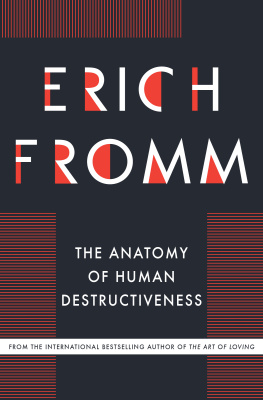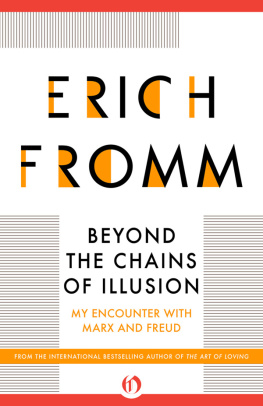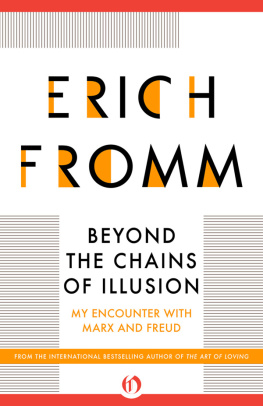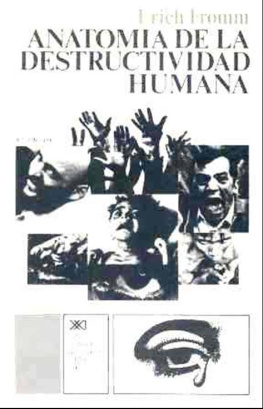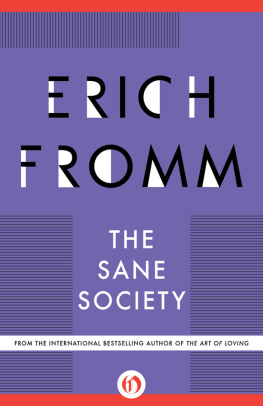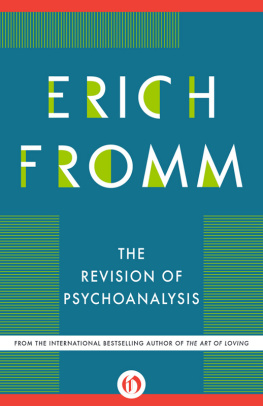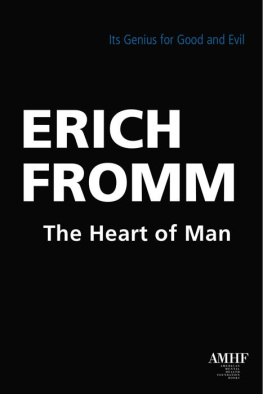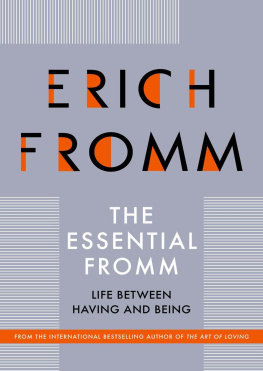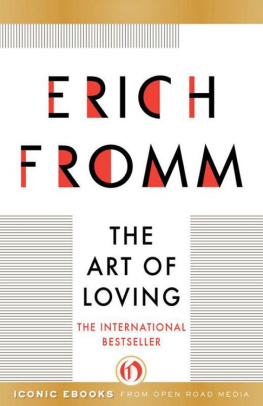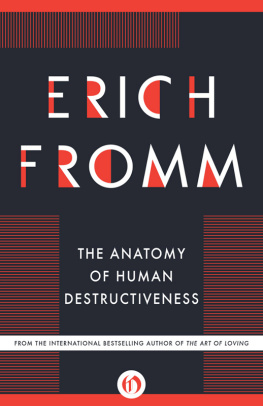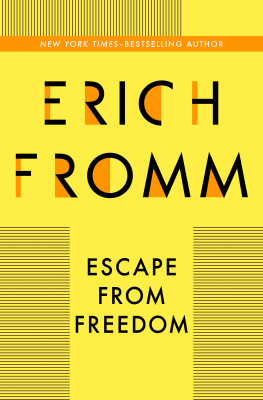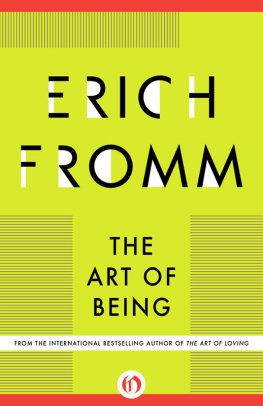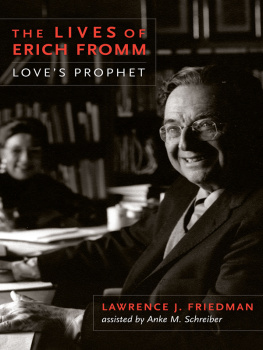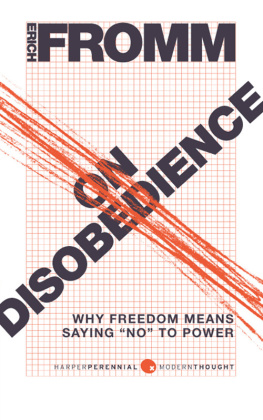Erich Fromm - Fascism, Power, and Individual Rights: Escape from Freedom, To Have or To Be?, and The Anatomy of Human Destructiveness
Here you can read online Erich Fromm - Fascism, Power, and Individual Rights: Escape from Freedom, To Have or To Be?, and The Anatomy of Human Destructiveness full text of the book (entire story) in english for free. Download pdf and epub, get meaning, cover and reviews about this ebook. year: 2017, publisher: Open Road Media, genre: Science. Description of the work, (preface) as well as reviews are available. Best literature library LitArk.com created for fans of good reading and offers a wide selection of genres:
Romance novel
Science fiction
Adventure
Detective
Science
History
Home and family
Prose
Art
Politics
Computer
Non-fiction
Religion
Business
Children
Humor
Choose a favorite category and find really read worthwhile books. Enjoy immersion in the world of imagination, feel the emotions of the characters or learn something new for yourself, make an fascinating discovery.
- Book:Fascism, Power, and Individual Rights: Escape from Freedom, To Have or To Be?, and The Anatomy of Human Destructiveness
- Author:
- Publisher:Open Road Media
- Genre:
- Year:2017
- Rating:5 / 5
- Favourites:Add to favourites
- Your mark:
Fascism, Power, and Individual Rights: Escape from Freedom, To Have or To Be?, and The Anatomy of Human Destructiveness: summary, description and annotation
We offer to read an annotation, description, summary or preface (depends on what the author of the book "Fascism, Power, and Individual Rights: Escape from Freedom, To Have or To Be?, and The Anatomy of Human Destructiveness" wrote himself). If you haven't found the necessary information about the book — write in the comments, we will try to find it.
Philosopher and social theorist Erich Fromm is renowned as a psychologist of penetration and a writer of ability (Chicago Tribune). In these three riveting works, Fromm sheds light on some of the most critical dilemmas facing humanity.
Escape from Freedom: Though freedom has been a prized value in Western culture for centuries, it is often accompanied by feelings of anxiety and powerlessness. Fromms compelling study demonstrates how these feelings of alienation can lead to a desire for conformity and authoritarianism, bringing invaluable insight into the rise of Nazism and fascism in Europe.
To Have or To Be?:Life in the modern age began when people no longer lived at the mercy of nature and instead took control of it. Fromm argues that through the process of modern materialism, the natural tendency of humankind moved away from practicing human abilities, and instead focused on possessing objects. Humankind therefore began using tools that replace our own powers to think, feel, and act independently. Fromm argues that positive changeboth social and economicwill come from being, loving, and sharing.
The Anatomy of Human Destructiveness: This classic study makes a distinction between animal aggression and certain forms of destructiveness that can only be found in human beings. His case studies span zoo animals, necrophiliacs, and the psychobiographies of notorious figures such as Hitler and Stalin, offering a comprehensive exploration of the human impulse for violence.
This ebook features an illustrated biography of Erich Fromm including rare images and never-before-seen documents from the authors estate.
Erich Fromm: author's other books
Who wrote Fascism, Power, and Individual Rights: Escape from Freedom, To Have or To Be?, and The Anatomy of Human Destructiveness? Find out the surname, the name of the author of the book and a list of all author's works by series.

